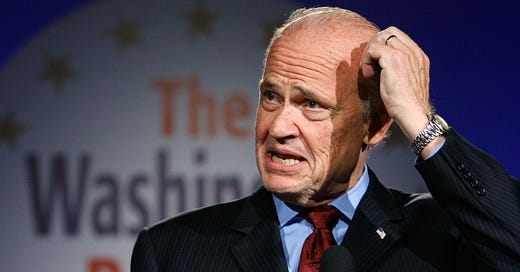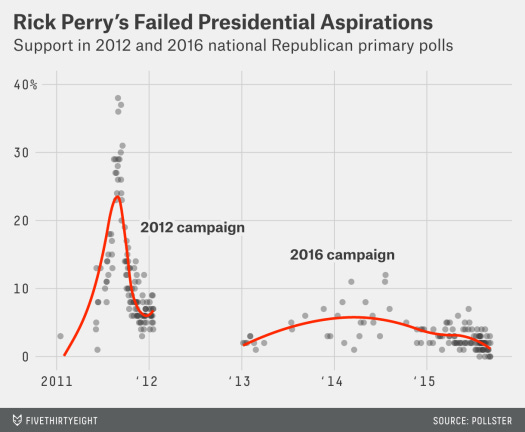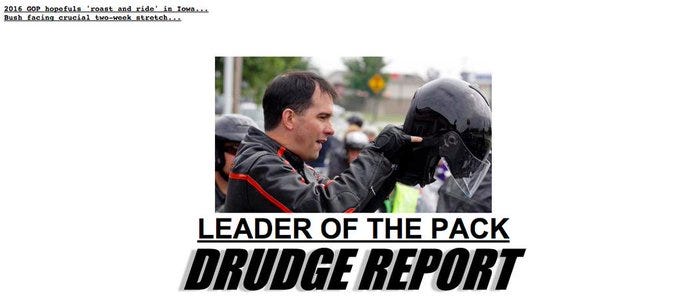For your Christmas week enjoyment, another notable encore from our files. This is from July 7, 2022 when DeSantis Fever was heating up:

For your “Character Is Destiny File” — British Prime Minister Boris Johnson’s lifelong addiction to prevarication seems finally to have caught up with him. Via the NYT:
Mislead, omit, obfuscate, bluster, deny, deflect, attack — the prime minister’s blueprint for dealing with a crisis, his critics say, almost never begins, and rarely ends, with simply telling the truth. Instead, he tends to start with a denial, move through several interim admissions in which his previous falsehoods are recast as honorable efforts at transparency, and then end with a great show of remorse in which he appears to take responsibility for what happened while suggesting that it was not his fault.
His latest scandal — over a deputy whip accused of drunkenly groping two men — followed the same pattern. “[His] original claim that he had not been aware of any formal complaints against the official, Chris Pincher, followed by a series of painful revelations and finally by the admission that in fact he had known all along — was textbook Johnson.”
With his government crumbling around him, Johnson’s resignation was inevitable, but David Frum makes a crucial point for those of us on this side of the pond:

They were all front-runners. Then stuff happened.
I’m going out on a limb here, I know: but J.B. Pritzker is not going to be the next Democratic nominee for president. And the odds are that it won’t be Gavin Newsom either….
The same thing is happening in the GOP, where there is a good deal of post-Trump wish-casting.
The cool kid betting has Florida’s Ron DeSantis in the pole position. But don’t count on it, because these things always look better in the perfervid imaginings of pundits and consultants.
History suggests — actually it shouts at us — that there is many a slip twixt the hype and an actual candidacy.
Just ask President Fred Thompson. Or Rick Perry. Or Gary Hart. Or Jeb (!) Bush, Ed Muskie, Wesley Clark, Scott Walker, or America’s Freaking Mayor.
It’s worth remembering that, at one time, they were not just contenders — they were front-runners. And then stuff happened.
**
President Fred
My favorite example is Fred Thompson, who was everyone’s favorite dark horse for five minutes in 2007. You forgot about that, didn’t you?
In March 2007, CNN reported: “Thompson's star rises with GOP.”
Roughly two weeks ago, Thompson said he was considering a run for president. Since then, he has skyrocketed out of nowhere to rank third among GOP White House hopefuls in a new USA Today/Gallup poll published Tuesday.
The poll shows former New York Mayor Rudy Giuliani with 31 percent, Sen. John McCain, R-Arizona, with 22 percent, and Thompson with 12 percent of the vote.
Politico was still bullish on Thompson in June.
If you were running for president, whose shoes would you rather be in today: Mitt Romney’s or Fred Thompson’s?…
Thompson, who hasn’t even formally declared his candidacy, is just putting together an organization and has yet to even set foot in Iowa or New Hampshire. But his acting and political careers have made him the hot candidate of the moment, as shown in recent national surveys where he is either tied with McCain for second or alone in that spot….
As late as September 2007, Thompson was still the new hotness.
McLean, VA - As Fred Thompson prepares to address the Mackinac Republican Leadership Conference later today, recent polls show Fred Thompson tied or leading in three early primary states: Michigan, South Carolina and Florida.
Then he announced. And disappeared from American political history.
**
President Wesley
For a moment there in 2003, Democrats thought they had found their Great Hope in General Wesley Clark.
PRINCETON, NJ -- The latest CNN/USA Today/Gallup Poll shows Ret. Army Gen. Wesley Clark's entry into the race for the Democratic nomination has for the moment greatly changed the campaign's character. Just days after announcing, Clark has almost a 10-percentage-point lead over all other candidates for the nomination. Additionally, Clark tends to fare better among the leading Democratic candidates in hypothetical head-to-head matchups with President George W. Bush…
Yeah. No.
**
President Rick
What better launching point for the presidency than the governorship of Florida or Texas, right? Jeb Bush thought so. And so did Rick Perry.
But the reality didn’t live up to the hype.
Texas Gov. Rick Perry launched his presidential bid in August, a late arrival to the already crowded Republican field. Within weeks, he had spiked in the polls — but that was before he started to debate. A string of poor nationally televised performances started Perry’s descent. He sealed his fate in November with an infamous "oops." After a disappointing fifth place finish in the Iowa caucuses, Perry headed home to Texas for a quick reassessment. He skipped New Hampshire altogether. In last-ditch South Carolina, Perry called it quits two days before the primary.
The folks at Fivethirtyeight chronicled Perry’s fancy dive:
As the above chart shows, Perry entered the 2012 Republican primary as a contender. He was leading in the polls before he self-immolated and was forced to quit the race with just a few percentage points of support.
**
President Scott
This one is a bit closer to home since Scott Walker was my home state governor (and we go waaaay back). I admit that I was always skeptical about a Walker presidential bid, but others were all-in.
He was still in the political green room when he surged to front-runner status. In February 2015, CNN reported:
Walker is leading a crowded field of potential presidential candidates in Iowa with 25% of likely Republican caucus-goers throwing their support to Walker in a Quinnipiac University poll released Wednesday.
New York Magazine recounted what happened next.
[After] a single speech in Iowa, the Wisconsin governor became “Jeb’s most formidable opponent,” a “conservative who can win big battles,” and the key to “the GOP’s bright, fearless future.” Then in July, Walker finally announced that he was entering the 2016 race, and everything started to go downhill…
But, before the end, Walker was repeatedly crowned the front-runner. Here’s Jim Geraghty in the National Review in late February:
No, Really, Scott Walker is the Frontrunner.
Quinnipiac polls likely Iowa Republican Caucus participants and finds Wisconsin governor Scott Walker leads the pack with 25 percent; 13 percent for U.S. senator Rand Paul of Kentucky, 11 percent each for physician Ben Carson and former Arkansas governor Mike Huckabee, and 10 percent for former Florida governor Jeb Bush. No other candidate is above 5 percent, and 9 percent are undecided.
Things were still looking rosy in April:
The billionaire Koch brothers, who plan to spend $900 million to advance conservatives in the 2016 campaign, revealed that Walker was their favorite candidate. The governor didn’t get an official endorsement, but David Koch told donors that “When the primaries are over and Scott Walker gets the nomination,” they would back him.
In June, this was the main story in the Drudge Report:
In July, he formally announced:
Some outlets ran stories such as “How Scott Walker Will Win” and “Six Reasons Why Scott Walker Will Be Elected President,” but the Times raised the possibility that Walker’s shift to the right on issues like same-sex marriage, immigration, and ethanol subsidies to maintain his lead in Iowa was making him appear inauthentic and costing him elsewhere in the nation.
CNN polls puts former frontrunner in bottom tier with less than 0.5%
“Walker’s collapse is especially stark,” said the network’s report on the survey. “Celebrated by conservatives – in the party’s base and its donor class alike – for his union-busting efforts in Wisconsin, Walker at one point led the field in the key early voting state of Iowa.”
Walker now enjoys just 1.8% of support among Republicans, according to a polling average by RealClearPolitics. A separate NBC survey on Sunday found his support had dropped from 7% to 3% since last month and that only 1% now believed he would ultimately be the Republican nominee.
**
President Rudy
Speaking of the spectacular collapse of a pre-game favorite…. “Rudy Giuliani once had a real chance of becoming president – and he blew it.”
Giuliani, still riding a wave of good feeling from his handling of the 9/11 attacks, was raising serious amounts of cash, and was the best-known of the Republican candidates. He had a very real chance of succeeding George W Bush.
It’s hard to imagine now, but at the end of 2006, Giuliani was the most popular politician in the country. In March 2007, after Giuliani formally announced his White House campaign, he was the early favorite to win the Republican primary contest, with 44% support nationwide. (John McCain, the eventual nominee, was second with 20%.) Giuliani maintained that lead throughout the year, and raised the most money.
Armed with a campaign slogan that read like the responses to a word-association examination – “Tested. Ready. Now” – Giuliani seemed destined to represent the Republican party in the November 2008 election….
You know the rest.
**
Exit take: Even for an experienced pol — the governor of a major state or mayor of NY —running for president is like moving from t-ball to the Major Leagues.
So, predictions are always — always — risky.







A hand-wringer on Daily Kos commented that, in a Biden-Desantis matchup, all voters will see is a doddering 80-year old and a 45-year old. Why, I asked, would they not see a straight shooter vs. a guy who couldn’t look anyone in the eye if his kids’ lives depended on it? Or someone who cares vs. someone who sneers? I’m not a Republican, so take this for what it’s worth, but it’s hard to see Desantis succeeding in the retail politics crucible of the early primaries and caucuses.
It's just one more demonstration why obsession on polls is a terrible mistake for news organizations to make. Increasingly over the years, the reporting on polls by news organizations has become the dominant driver of news coverage. It masks (or tries to) the fact that no real reporting is going on. A reporter or columnist can sit back at his desk and write stories based on polls and never set foot on the ground where the real news is happening. It's one thing to use polls to advise you what to look for. It's another to make them the news. Hire more real reporters and get them out there pounding their beat. And the beat isn't a poll.